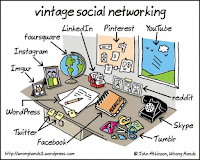At the Center of Me...
I remember entering undergrad, sure of why I wanted to become a teacher, but as time progressed and I became more experienced with teaching and pedagogy, I slowly began to lose sight of my initial beliefs about learning, teaching, and the world we are in. However, as I dove head first into developing my Pecha Kucha narrative, I unearthed those beliefs once again.
My three core beliefs about learning, teaching, and the world:
 Additionally, I noticed that parents, especially my parents of color, were hesitant to entrust their students' time to a white, middle class female teacher when we began talking about social issues through literature and the like. I have always known that I am. I will always be white. There is nothing I can do to change that. What I can change is how my families and parents view me. Too many times I have seen white colleagues of mine try to preach to their students-- white and of color-- how to become socially active and challenge the system. However, these teachers (myself included) failed to give space to that our students already do that; we took away their expertise and voice, including the voice of their parents and families, and as a result, we lost their trust. Parents and families felt that they were being circumvented, overruled and silenced, rather than let in to their child's classroom to partake in this learning and teaching. It was never intentional that the teachers did it, but it happened nonetheless.
Additionally, I noticed that parents, especially my parents of color, were hesitant to entrust their students' time to a white, middle class female teacher when we began talking about social issues through literature and the like. I have always known that I am. I will always be white. There is nothing I can do to change that. What I can change is how my families and parents view me. Too many times I have seen white colleagues of mine try to preach to their students-- white and of color-- how to become socially active and challenge the system. However, these teachers (myself included) failed to give space to that our students already do that; we took away their expertise and voice, including the voice of their parents and families, and as a result, we lost their trust. Parents and families felt that they were being circumvented, overruled and silenced, rather than let in to their child's classroom to partake in this learning and teaching. It was never intentional that the teachers did it, but it happened nonetheless.
My three core beliefs about learning, teaching, and the world:
- I believe learning is derived out of an individual's experiences that he or she can engage with topics being taught in class. I believe that learning happens when individuals feel safe in the environment they are in surrounded by people of diverse experiences and backgrounds because it is from diverse experiences that we can really learn. I believe true learning occurs when we are able to set aside our preconceived notions of a topic and learn from others.
- I believe teaching occurs through open dialogue, that adults and children alike can teach one another when given the space to do so, and that teaching helps us to understand ourselves and our own philosophies and beliefs on a deeper level. Through teaching, we can instill empathy and the importance of respecting others.
- I believe that the world is constantly changing, and as such educators need to adjust how they approach topics to incorporate experiences relevant to their students' lives and the current events of the society in which they live. I believe that the world naturally offers us opportunities to learn and teach when we allow ourselves to be challenged and pushed outside our comfort zones.
Bringing It All Together
When I allowed myself time to think back to my core beliefs, I started to understand more and more why I kept being pulled towards the notion of creating an open classroom environment space through the use of technology like TalkingPoints, ClassDojo, and Wiki Classroom. For me, I knew it was not simply about creating a classroom environment for students to feel safe in; almost every teacher I know does this. I continued to ask myself why this felt so critical to me: Why did I want to have quick, constant communication with parents? Why did I want to create a page where families could see what was happening on a weekly basis? Why did I want to have a classroom page where students and families could leave comments and ask questions? Those were the three "whys" that constantly rattled around in my brain, and it took me awhile (in my book) to get to the root of it all: social justice.
Ever since I began my undergraduate career as an elementary educator, there was this talk and notion of teaching for social justice, but it was not until I began my master's work that I understood how to incorporate social justice teaching into a curriculum that neglected anything other than the SCWAAMP perspective. However, I realized from my own experiences that students very rarely opened up to discussing these issues, even when the teacher made it clear that everyone's perspective was valued, regardless of their stance on an issue. I began digging into why students wouldn't voice their opinions in class that they would voice to me during conferences or special lunch dates, and I concluded one thing: they did not feel safe sharing those opinions because we had not created a space from the beginning that opened students up to other individual's voices and perspectives. Yet, we trudged ahead with our social justice curriculum, not once trying to connect the curriculum with our students' experiences in the world, not once allowing our students to teach us, not once attempting to learn from their ideas and experiences.
I also realized that we did not give students real time to reflect on what they were experiencing, and this is a problem with the educational curriculum in general, regardless if it has a social justice undertone. There is a constant emphasis to forge ahead and push along, rarely stopping to allow our students to ask questions or ponder "WHY?" If we do not create time and space for this thinking to take place, how can we expect students to develop deeper critical thinking skills along with empathy and sympathy? We can't. We need to create this space in a manner that enables our students to combine everything they are learning and exposed to in order to make sense of it all.
 Additionally, I noticed that parents, especially my parents of color, were hesitant to entrust their students' time to a white, middle class female teacher when we began talking about social issues through literature and the like. I have always known that I am. I will always be white. There is nothing I can do to change that. What I can change is how my families and parents view me. Too many times I have seen white colleagues of mine try to preach to their students-- white and of color-- how to become socially active and challenge the system. However, these teachers (myself included) failed to give space to that our students already do that; we took away their expertise and voice, including the voice of their parents and families, and as a result, we lost their trust. Parents and families felt that they were being circumvented, overruled and silenced, rather than let in to their child's classroom to partake in this learning and teaching. It was never intentional that the teachers did it, but it happened nonetheless.
Additionally, I noticed that parents, especially my parents of color, were hesitant to entrust their students' time to a white, middle class female teacher when we began talking about social issues through literature and the like. I have always known that I am. I will always be white. There is nothing I can do to change that. What I can change is how my families and parents view me. Too many times I have seen white colleagues of mine try to preach to their students-- white and of color-- how to become socially active and challenge the system. However, these teachers (myself included) failed to give space to that our students already do that; we took away their expertise and voice, including the voice of their parents and families, and as a result, we lost their trust. Parents and families felt that they were being circumvented, overruled and silenced, rather than let in to their child's classroom to partake in this learning and teaching. It was never intentional that the teachers did it, but it happened nonetheless.
And, so, I have vowed to myself that, if I truly want to create a classroom for social justice, I have to alter how I have been creating my classroom environment. It is no longer just about the physical space; it includes everything in between as well-- the listening, the speaking, the collaboration. And these pieces are not just between the teacher and the students; it is student to student, teacher to parent, parent to parent, and student to parent. We are all stakeholders in developing children's habits of minds, and in order to open them up to learning about and having difficult conversations around these topics, we first must create a classroom where they feel safe, valued, and trusted. Because if my students won't even take risks when it comes to solving math problems or using a new reading strategy, how can I ever expect them (and their families) to be willing to take risks while learning about social justice issues?




We share a common WHY in our work: social justice. I enjoyed your post.
ReplyDeleteIt's always interesting when you find yourself brought back to your core beliefs. Revisiting the why of it all is so helpful! Good job!
ReplyDelete